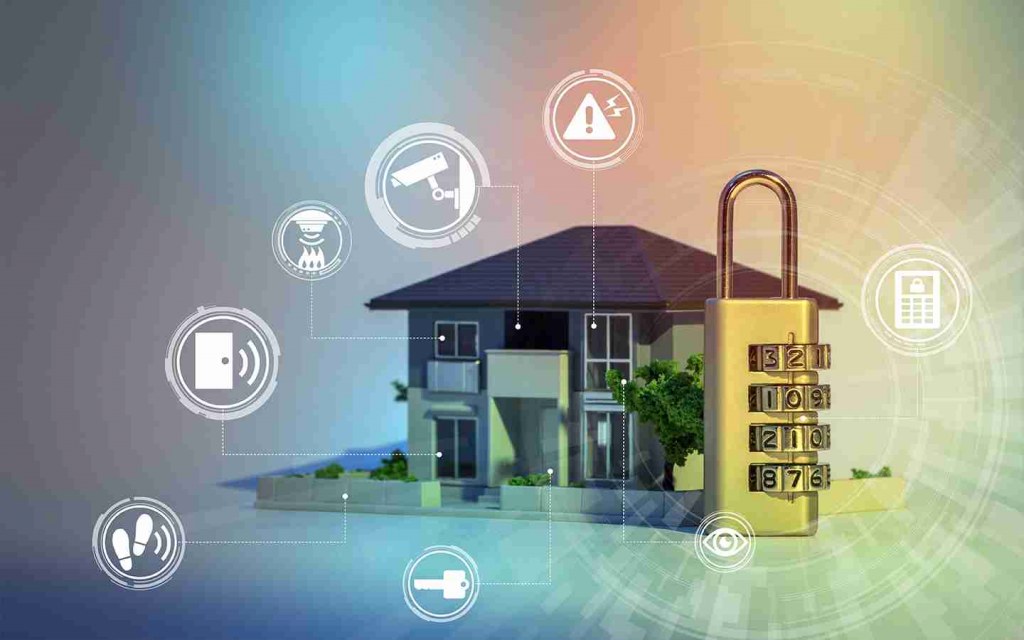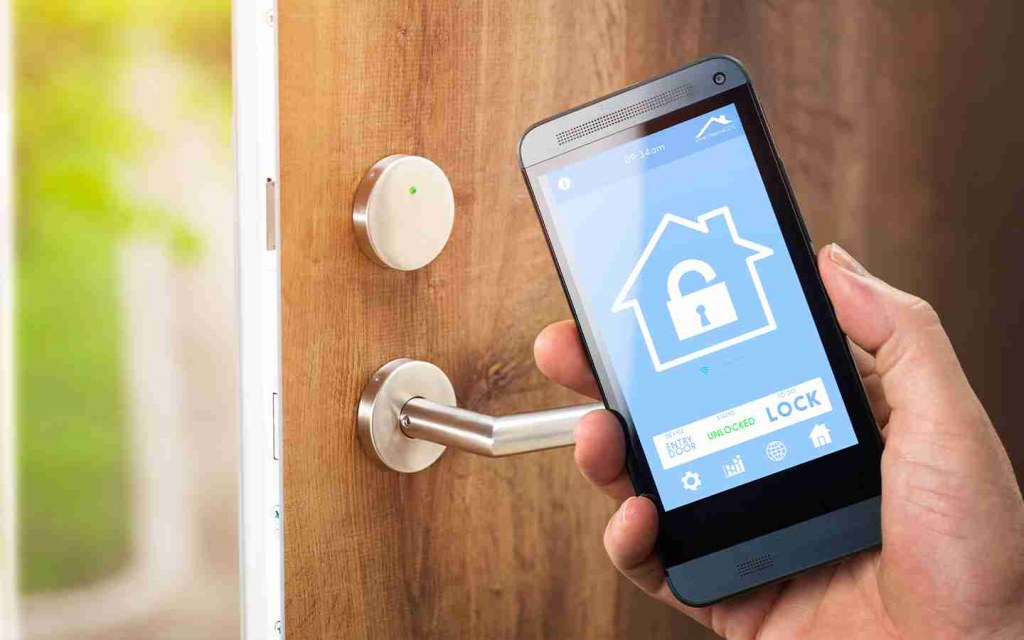In an era where safety concerns are ever-present, investing in residential security systems has become a critical decision for homeowners. The importance of protecting your dwelling cannot be overstated—it’s about safeguarding not only your belongings but also the well-being of your family. This article delves into the significance of these systems and why entering the realm of home protection is more essential than ever.
Understanding the Importance of Residential Security Systems
As the world evolves, so do the threats that we face within our own homes. Residential security systems have emerged as indispensable tools for enhancing safety and peace of mind. Understanding their importance is the first step toward making an informed decision about the protection of your home.
The Role of Home Protection in Today’s World
Today’s society is marked by unpredictability, where various forms of crime can occur even in seemingly secure neighborhoods. Home protection acts as a deterrent against potential intruders who may seek to invade your space. The presence of a security system not only decreases the risk of burglary but also enhances the overall sense of safety among residents.
Moreover, a well-designed security system offers real-time alerts and notifications, ensuring that homeowners stay informed about their property. These features are invaluable in emergencies, allowing swift responses to threats and potentially averting disastrous outcomes. Advanced systems can integrate with smart home technology, enabling homeowners to monitor their property remotely through smartphones or tablets. This level of accessibility provides an added layer of convenience and control, allowing individuals to check on their homes while at work or traveling, thus reinforcing the feeling of security even when they are away.
The Psychological Benefits of Feeling Secure at Home
Feeling secure in one’s home is crucial for mental well-being. A robust residential security system provides a comfort that allows families to relax and enjoy their living space. Studies show that individuals who feel secure tend to have reduced anxiety levels, leading to enhanced family interactions and overall life satisfaction.
In addition, the reassurance of having a security system can enhance neighborhood ties. When homes are secured, communities tend to foster a greater sense of safety and cooperation, as residents watch over each other’s properties and engage in community activities with a balanced level of comfort. This collective vigilance not only strengthens relationships among neighbors but also cultivates a culture of trust and support, which can be vital in times of crisis. Furthermore, many security systems now offer features such as neighborhood alerts, connecting users with local crime reports and safety updates, thereby creating a more informed and proactive community environment.
Key Features of Modern Residential Security Systems
Modern residential security systems come with a variety of features designed to protect homes effectively. Understanding these elements can help homeowners choose solutions that best fit their needs.
Surveillance Cameras and Their Advantages
Surveillance cameras are fundamental to any modern security system. They provide visual evidence of events on your property, acting as a deterrent against criminal activity. Many cameras now boast high-definition video quality, night vision, and even motion detection, giving homeowners peace of mind with 24/7 monitoring.
Additionally, many surveillance systems allow for remote viewing via smartphones and tablets. This capability enables homeowners to keep an eye on their property from virtually anywhere, enhancing their sense of security and control. Some advanced models even incorporate artificial intelligence to distinguish between familiar faces and strangers, sending alerts only when necessary, which reduces false alarms and enhances the overall efficiency of the system.
Alarm Systems and Their Role in Home Protection
Alarm systems are another critical component of residential security. These systems detect unauthorized access and alert homeowners or authorities immediately. With varying types of sensors, such as door/window contacts and motion detectors, these alarms can be fine-tuned to meet specific property needs.

Modern alarm systems often feature integration with home automation systems, allowing homeowners to receive alerts and control security settings remotely. This flexibility ensures that you can manage your home’s security even when you are away. Some systems also offer smartphone notifications, so you can be informed of any unusual activity in real-time, allowing for prompt responses and potentially preventing theft or damage before it escalates.
Smart Home Integration and Its Benefits
The integration of smart technology into residential security systems is a game-changer. Smart home devices can enhance security systems, providing homeowners with unparalleled control and convenience. From smart locks to intelligent lighting, these devices work together to create a seamless security experience.
For instance, smart lights can be programmed to turn on and off at specific times, creating the illusion of an occupied home—an effective deterrent against potential break-ins. Furthermore, many systems allow for voice-activated controls, enabling hands-free management of security functions. This integration extends to smart doorbells equipped with cameras, allowing homeowners to see and communicate with visitors at their door from anywhere, adding an extra layer of safety and convenience. Moreover, some systems can even integrate with local emergency services, ensuring that help is just a button press away, enhancing the overall security landscape of the home.
Evaluating the Cost of Residential Security Systems
Understanding the financial commitment involved in securing your home is essential. Evaluating the cost of residential security systems involves analyzing both initial investments and long-term benefits.
Initial Investment vs Long-Term Benefits
The initial cost of a residential security system can vary widely based on the complexity and technology involved. While some homeowners may perceive these systems as an expense, considering the long-term benefits can drastically change that perspective.
Investing in security systems can save homeowners money over time by potentially preventing theft, vandalism, and property damage. Additionally, many insurance providers offer discounts for homes with security systems, further recouping the upfront costs.
Moreover, the peace of mind that comes with a well-installed security system can be invaluable. Homeowners can rest easier knowing that their property is being monitored, allowing them to enjoy vacations or time away from home without the constant worry of potential intrusions. This psychological benefit, while harder to quantify, plays a crucial role in the overall value of investing in a security system.
Financial Implications of Home Break-ins
The financial repercussions of a home burglary can be devastating, often extending far beyond the immediate loss of items. Homeowners may face costly repairs, increased insurance premiums, and the emotional toll of feeling unsafe in their own home. The investment in a solid security system can, therefore, be viewed as a safeguard against these financial setbacks.
Moreover, some advanced security systems offer monitoring services that can alert authorities immediately during a break-in, which not only protects belongings but can also prevent injuries and other severe outcomes. The integration of smart technology, such as mobile alerts and remote surveillance, further enhances the effectiveness of these systems, allowing homeowners to monitor their property in real time from anywhere in the world. This capability not only deters potential criminals but also empowers homeowners with greater control over their security measures.
Additionally, the rise of smart home technology has transformed traditional security systems into comprehensive home management solutions. Features such as smart locks, doorbell cameras, and motion sensors can be integrated to create a seamless security experience. These innovations not only enhance safety but can also lead to energy savings and increased property value, making the initial investment even more justifiable in the long run.
Choosing the Right Security System for Your Home
With an array of options available, homeowners must carefully assess what system works best for their needs. The right security system should complement both the architecture of the home and the specific requirements of the family.
Assessing Your Home’s Security Needs
Before selecting a security system, take the time to evaluate the layout of your home and identify vulnerable areas. This assessment may include checking entry points, analyzing sight lines, and understanding the general traffic patterns around your property.
Once you’ve identified potential threats, you can then choose a system that addresses those unique risks effectively. For example, homes with larger plots may benefit from comprehensive perimeter monitoring, while smaller properties might find full camera coverage sufficient.
Comparing Different Security System Providers
When it comes to residential security systems, not all providers are created equal. Researching and comparing providers is crucial to finding the right fit for your needs. Look for companies with proven track records, positive customer reviews, and reliable customer support.
In addition, consider the flexibility of services offered, such as customizable packages or the ability to upgrade systems as technology advances. A provider that allows these options will ensure that your investment continues to serve you well into the future.

The Future of Residential Security Systems
The landscape of residential security is continuously evolving. Innovations in technology are enhancing how homeowners view and interact with their security systems.
Technological Advancements in Home Protection
Technological advancements are paving the way for more sophisticated home protection methods. From artificial intelligence algorithms that can differentiate between familiar faces and strangers to automated systems that can adapt to environmental changes, the possibilities are exciting.
These innovations not only improve security but also drive user engagement, making it easier for families to utilize their systems effectively. The integration of AI can help reduce false alarms, ensuring that homeowners receive real alerts when they matter most.
The Growing Importance of Cybersecurity in Home Protection
As homes become smarter and more connected, cybersecurity is an emerging concern in the realm of residential security. Systems connected to the internet can be susceptible to hacking, leading to privacy violations or unauthorized access to security features.
It is essential to choose systems that incorporate robust encryption methods and regular updates, ensuring that your home remains secure not only physically but also digitally. Homeowners should also remain vigilant about their digital practices and educate themselves on potential vulnerabilities.
Investing in residential security systems is more than just a reaction to crime; it is about proactively creating a safe haven for family and friends. By understanding the intricacies of modern security features, weighing the costs, and keeping an eye on future developments, homeowners can make decisions that significantly enhance their peace of mind.
Related article: Small Business Security Systems: Affordable Solutions to Protect Your Business
